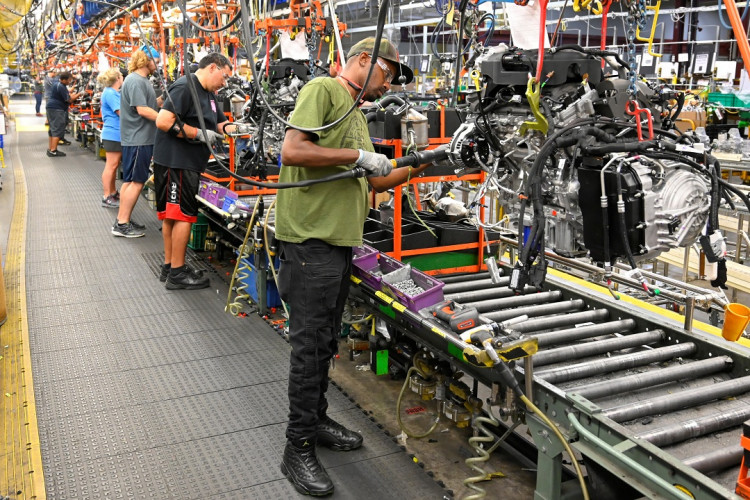Amid a backdrop of rising tensions, United Auto Workers (UAW) President Shawn Fain bolstered his call for enhanced terms from Detroit's automotive triumvirate, hinting at extended strike actions if their terms weren't met. The "Big Three" automakers, despite tabling record contract proposals, are under pressure to offer more, particularly as they navigate impressive profitability margins.
GM, Stellantis, and Ford, all part of the Big Three, have reportedly proposed a 23% wage increase. Yet, Fain urged union members that further ground could be gained, emphasizing that these car giants can certainly afford to sweeten the pot. Fain's emphasis on potential further strikes comes even as he assures members that resolution talks are nearing a conclusion.
However, it's not just about the wages. The issue, as Fain suggests, lies deeper. He criticized Ford's recent $600 million quarterly dividend, highlighting it as a stark contrast to the automaker's reluctance to hike hourly worker wages.
"Record contracts at the end of decades of record decline. So it's not enough," Fain remarked. He urged unity among the members, especially as some voice their grievances on social media about the hardships they face due to the strike. "We have one tool and that's solidarity," Fain stressed.
GM, trying to present its stance, characterized its latest proposal as the most ambitious it has ever presented to the UAW. Their package encompasses not only wage hikes but benefits for temporary employees as well. GM's statement pointed out that by the end of their proposed agreement, most of their workforce would see annual earnings of about $84,000.
While Ford did not furnish a fresh proposal this week, the sentiment from their camp is clear: there's a line they can't cross to stay competitive. Ford executive chair, Bill Ford, articulated concerns about the broader implications of the strike, stating it benefits foreign competitors more than anyone else.
"Toyota, Honda, Tesla, and others are loving this strike because they know the longer it goes on, the better it is for them," he said. The underline message was clear; a protracted strike could reshape the landscape of the American automobile industry.
In a world rapidly shifting to electric vehicles, automakers argue that conceding to the UAW's demands would stymie their aspirations in the EV sector, a market currently dominated by non-unionized Tesla.
It's clear the UAW and the Detroit Big Three are at a pivotal juncture. Both sides acknowledge the unprecedented nature of the offers on the table. However, for the UAW, it's more than just about this contract-it's about regaining ground lost over decades. For the automakers, it's a balance between staying competitive and retaining their workforce's loyalty. How this plays out could define the automotive industry for years to come.






